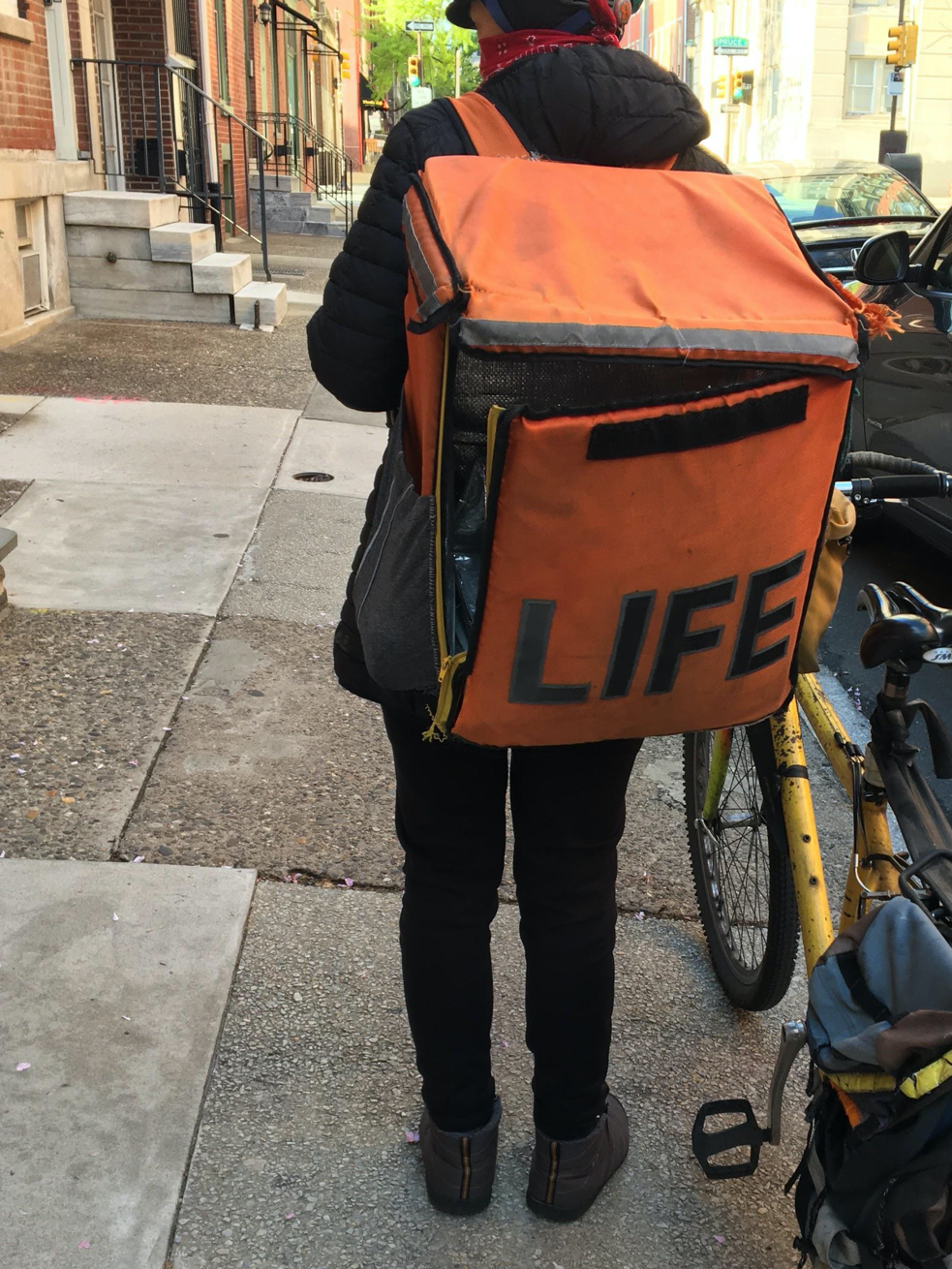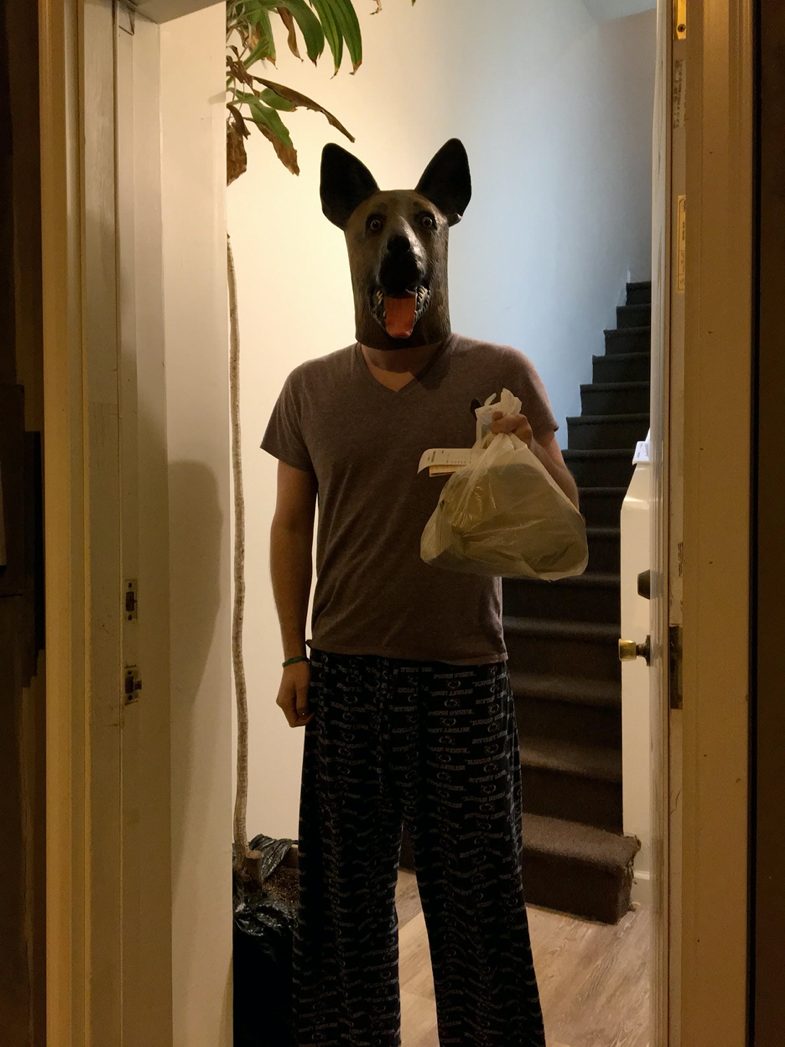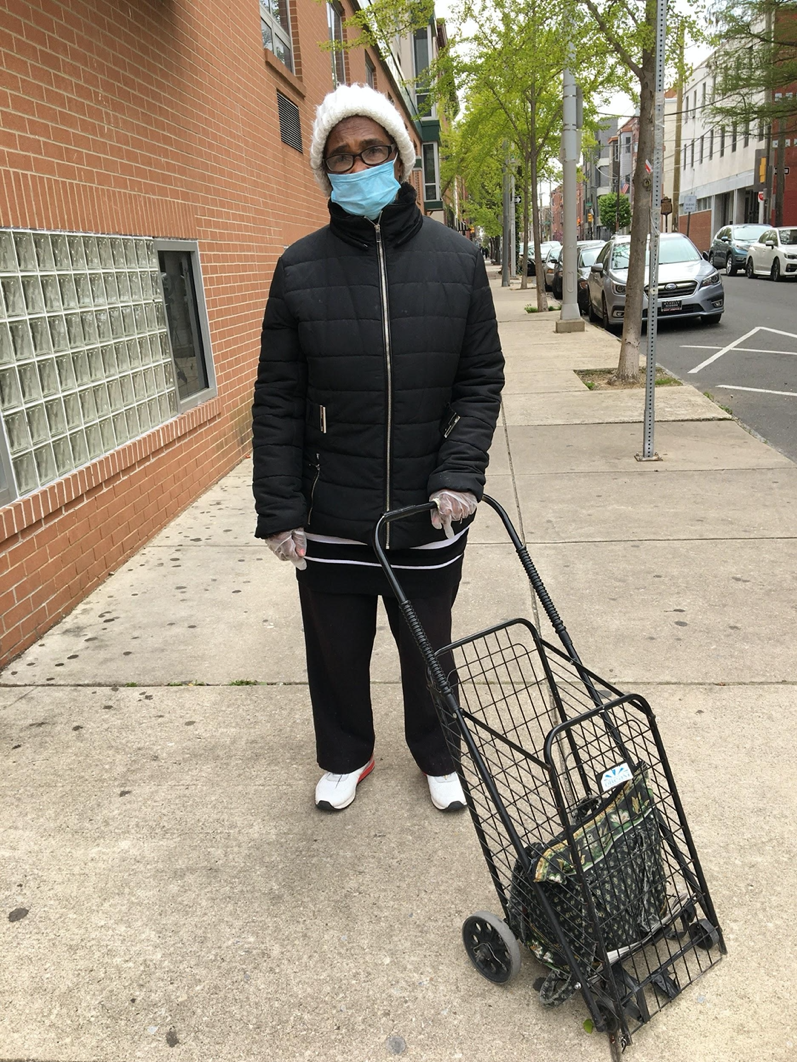1.

I deliver food on my bike. I’m dispatched from Center City, Philadelphia, into outlying neighborhoods—as far north as Fishtown, deep into South, and across the bridge into West Philly. Work like this is strange; the phone is your boss. When the stay-at-home order was enacted and COVID started cropping up in Philly, I had to decide: Do I keep doing this or do I stop? My wife was hoping I would stop. I asked George and Joél if they were going to ride or stop. We kept riding.
The streets are empty; I don’t feel safe alone. But I see other couriers at hot spots—restaurants with a lot of business. It’s like fishing: You go to the bend where the water settles and you know there will be trout spawning. These places have changed since COVID. Some of those restaurants have closed down, other places have opened up. I met one courier on Sixteenth Street between Spruce and Locust, carrying a bag decorated for her friend Pablo, who got hit and killed while delivering. I’d heard of Pablo before. There’s a shrine kept for him at Tenth and Spring Garden. Her bag had life written on it—she said she wrote it for people to see that we’re here, and that our lives matter. It was a worn-out bag. It looked like everything had just spilled out of it.
There are tenuous and desperate vibrations on the streets in the city. At first, I wasn’t quite conscious of the changes happening around me. I realized the magnitude of desperation when my bike got jacked. The virus has exposed a sickness that has been present in the city for a long time: homelessness, mental illness, drug addiction.
With the city shut down and everybody staying home, the unsheltered people in Center City are still outside. Before, they didn’t have many resources. Now, even fewer. Nowhere to go to the bathroom, nowhere to plug in a phone, nowhere to wash. Places that served as shelters are now boarded up.
2.

When I deliver food, I see a lot of people wearing pajamas. They seem out of it, many not wearing masks. But I have noticed more genuine gratitude. Before COVID, I was less interested in the person than the tip they might give, and they were more interested in their food than the people preparing and delivering it. Now there’s more generosity in the sauce: That cuts both ways. People are hungry for human interaction; they want to display their humanity, and they have fewer opportunities to do that over the course of their days. They can show me gratitude and interest because they can’t with the people they actually care about. The tips have been better too.
Before the deliveries would only go so far, but now they go deep into the neighborhoods so the restaurants can catch more business. I run all over the city. One night, when I was run ragged, a guy opened the door in an underdog mask from the 2018 Super Bowl. I laughed out loud—it felt like Halloween in reverse. Philly is thought of as a downtrodden, underdog kind of place. The Eagles weren’t supposed to win against the Patriots. But that Super Bowl, we beat the odds. We were riding high. When he opened the door, for a minute, I remembered that feeling.
3.

Gigging can feel like you’re stuck in a video game. It’s exploitative. You can play forever and never be satisfied. Sometimes the money’s good, sometimes it’s not. There’s always the option to keep working. But when I first started, it was a liberating feeling. Before this, I worked at Starbucks. Zombie work. Outside on a bike, you focus on what you’re doing with your body. At the end of the day, you’re under the sun, gliding. I take pictures. Listen to books. Recently, I listened to On Photography by Susan Sontag. It was a good companion to riding and taking pictures. She talks about the ethics of photography and specifically what photography can’t do. How the meaning of a photograph will always change depending on the context in which it’s viewed. She made me think about what my eyes were drawn to and why; how photography relates to class and exploitation. She made me think about where I fit into the world while I ride around on my bike delivering food and whether I have the right to take pictures, especially at a time when what’s available to photograph, who’s on the street, are people who are homeless, strung out, or people who are like me, forced to work.
Mary asked me over after I waved hello. She asked me if I could help her out with a dollar so she could get on the bus. I gave her all the money I had—ten dollars. She said that she lived alone and hadn’t seen her family because of the quarentine. Her government check was a week late, and she was worried she couldn’t get to see her doctor. She seemed upset and wanted someone to talk to. She wished that everything would just get back to normal. I saw her again the next day. She had seen the doctor.
These dispatches are from #VQRTrueStory, our social-media experiment in nonfiction, which you can follow by visiting us on Instagram: @vqreview.






